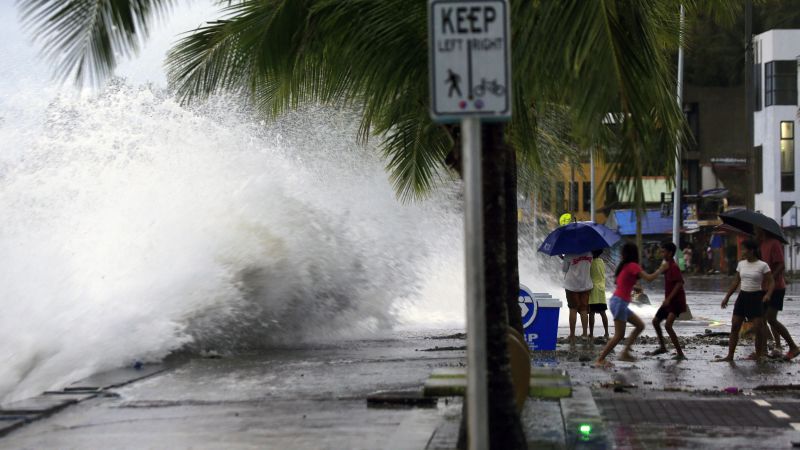Headline: Ireland Struggles to Retain Essential Workers Amidst Crisis
In a nation touted for its cultural richness and vibrant lifestyle, the current shortage of essential professionals like teachers, gardaí, and nurses raises critical questions about Ireland’s sustainability as a great place to live and work. The alarming exodus of skilled individuals has sparked discussions about the underlying challenges faced by these crucial sectors, emphasizing the urgent need for comprehensive solutions.
The Current Landscape
As of [insert date], Ireland is facing severe staff shortages in sectors that are vital for the functioning of society. The National Association of Secondary Teachers (NAST) has reported a crisis in recruitment and retention of teachers, while the Irish Nurses and Midwives Organisation (INMO) warns of escalating emergency department overcrowding due to insufficient nursing staff. Similarly, the Garda Síochána is struggling to fill its ranks, creating significant strains on public safety and community trust.
"Every day we hear from principals unable to hire qualified teachers, hospitals cancelling surgeries due to lack of nurses, and communities feeling increasingly unsafe due to inadequate policing," says Mary O’Sullivan, a spokesperson for the Irish Council for Teachers. "We must ask ourselves, how can we be a great little country when those who serve us are stretched to their limits?"
Who is Affected?
The impacts of these shortages stretch across various demographics and industries:
- Students and Families: School closures and increased class sizes hamper the educational experience and learning outcomes for students.
- Patients and Healthcare Workers: Patients face longer wait times for care, placing unsustainable pressure on existing staff, leading to burnout.
- Communities: Reduced police presence can make communities feel less secure and more vulnerable to crime.
What are the Root Causes?
Experts attribute the staffing crisis to multiple factors, including:
- Wage Disparities: Many professionals in the public sector are paid significantly less than their counterparts in private industry.
- Workplace Conditions: High levels of stress, inadequate support, and increased workloads contribute to staff burnout and turnover.
- Increased Costs of Living: The rising cost of living, especially in urban areas, makes it challenging for workers to make ends meet.
"We’re losing our best and brightest to countries that offer better pay and working conditions," warns Dr. Sean McCarthy, a leading economist. "If we want to keep our teachers, nurses, and gardaí, we must invest in them."
The Government’s Response
In response to these growing concerns, the government has proposed several potential solutions:
- Increased Wages: A review of salary structures is underway, with promises of pay raises beginning in 2024 for teachers and nurses to attract new talent.
- Improved Working Conditions: Policymakers are exploring ways to enhance workplace environments through better resources and administrative support.
- Recruitment Drives: Initiatives aimed at encouraging new entrants into these professions, including scholarships and student loan forgiveness programs for education majors.
However, critics argue that these measures may not be sufficient. "What’s needed is a holistic approach that addresses both pay and working conditions," asserts Mary O’Sullivan. "Otherwise, we risk perpetuating a cycle of shortages and discontent."
Public Sentiment and Community Impact
Public sentiment towards these shortages is growing increasingly urgent. Many citizens express frustration over the declining quality of services they depend on.
- Community Meetings: Local groups have begun organizing town halls to discuss the staffing crisis, emphasizing the need for collective action.
- Social Media Campaigns: Hashtags such as #SaveOurTeachers and #NurseCareNow are trending, showcasing the growing awareness and activism surrounding this issue.
What Lies Ahead
As the government evaluates its approach, stakeholders from all sectors are calling for transparency and engagement in the decision-making process. The long-term impacts of these shortages are far-reaching, affecting the economy, public health, and social stability of Ireland.
Engage with Us!
We want to hear from you: What do you think are the most effective ways to address these critical shortages? Join the conversation in the comments below or share this article to raise awareness.
For further reading on this topic, visit our related articles on education reforms, healthcare challenges, and community safety initiatives. Additionally, check out [external link to authoritative sources] for the latest statistics and insights.
By fostering dialogue and collaboration, the hope is that Ireland can turn the tide on this pressing issue and reinforce its identity as a great little country for all citizens.
<!-- Image and Multimedia Elements -->
<img src="path/to/image.jpg" alt="Protest against staffing shortages">
<video src="path/to/video.mp4" controls title="Discussion on staffing issues in Ireland"></video>As we delve deeper into these pressing issues, it’s crucial for each one of us to stay informed and engaged for a brighter future for Ireland.


